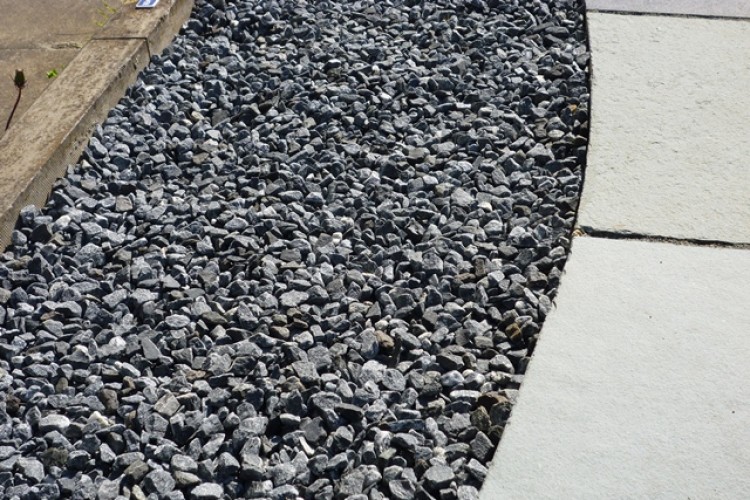The Mineral Products Association (MPA), which represents the quarrying sector, has carried out a detailed analysis of how much stone has been cleared for extraction under all the various local plans around the country and found a worrying shortfall.
The MPA has warned the government that it needs to intervene in the planning system if the UK is to ensure a steady and adequate supply of aggregates rather than turn to costly imports and further damage the negative balance of trade. This is the conclusion of MPA’s 2nd annual mineral planning survey (AMPS) for 2012.
The MPA said that the aggregates industry needs the certainty of a fully functioning and ‘fit for purpose’ plan-led system if capacity to meet the future demand for construction material is to be maintained.
Permitted reserves of sand and gravel are also in serious decline. They are being used up more than twice as fast as new reserves are being permitted.
The MPA said that planning authorities were putting too much effort into reducing potential future supply rather than getting on with the business of adopting robust mineral plans. Most authorities are giving little indication to quarry operators where planning applications are likely to be successful.
The latest AMPS found that average replenishment rates of aggregate reserves (i.e. the rates at which production is being replaced with new permissions) are continuing to decline. Only 43% of sand and gravel reserves have been replenished in the last 10 years to 2012 and around 98% of hard rock reserves although these tend to be concentrated in a few major sites and are not evenly distributed.
There has been a 38% drop in the total tonnage of landbanks in England and Wales since 1997.
Some 25% of sand and gravel landbanks in England are below the minimum of seven years and 50% are below 10 years.
The 15 year average approval rate for hard rock applications is 93% and for sand and gravel applications is 85%.
There has also been a significant increase in the time it takes to obtain planning permission for sand and gravel since 1996. Sand and gravel approvals took an average of 41 months in 2012 and hard rock approvals 38 months. This does not include the time spent in developing plans or securing sites and evaluating them prior to plan submission. The MPA’s statistics indicate that pre-application discussions do nothing to shorten this process. The majority of applications still take more than 12 months.

By the end of October 2013, only 51 out of 100 mineral planning authorities in England had an adopted core strategy, when the original target for completion of these documents was the end of 2007. In Wales, only 11 out of 25 authorities had an adopted local development plan, the MPA said.
The AMPS data shows that the running average replenishment rate for sand and gravel reserves took another tumble from 49% to 45% between 2010 and 2012.
With permission only granted for 75% of the tonnage applied for, it is getting more difficult to obtain planning permission for sand and gravel working. Previously the industry could expect to an 85% approval rate.
MPA chief executive Nigel Jackson said: “It is not surprising that the planning applications aren’t coming forward. Whilst the overall approval rate of applications is adequate, they take too long, they cost too much – typically between £100k and £800k – and lengthy pre-application discussions don’t help.”
Around 80% of sand and gravel appeals are successful which means that too many bad decisions are being made on sand and gravel applications, the MPA said. The industry has to build in the cost of these planning appeals into the price of the material to the construction industry.
“The performance of the plan-led system has been extremely disappointing in spite of recent changes,” Mr Jackson said. “Costs are rising as charges are levied for services that were previously considered part of statutory duties in the past and the costs of new and often pointless additional regulation are being heaped on top of that. There is a continual drift towards increased planning fees and charges for discussions with no commensurate improvement in planning performance.”
He added: “With too few plans, low landbanks, diminishing replenishment rates, increasing costs, and planning inertia fuelling uncertainty we are storing up supply problems for the recovery. Lack of demand over the last five years is masking underlying supply problems for the future.
“Government needs to get a grip on the realities rather than assuming things will improve. The Department for Communities & Local Government and the Planning Inspectorate need to step up their monitoring and put pressure on local authorities to ensure that the plan-making system is more streamlined and responsive. There will be significant future aggregates demands as economic recovery continues and major infrastructure projects commence.
“We can deliver sufficient supplies of aggregates and related products but we need the industry and planning and regulatory systems to be pulling in the same direction to ensure that this sustainable long-term UK supply of mineral products is actually achieved.”
Got a story? Email news@theconstructionindex.co.uk



